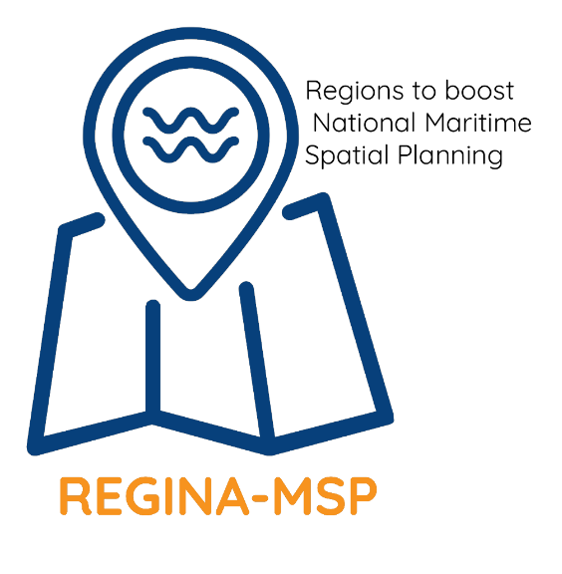
REGINA-MSP

- Title:
-
Regions to boost Maritime Spatial Planning (REGINA-MSP)
- Start Date
-
1st November 2022
- End Date
-
31st October 2024
- Funding Body
-
CINEA-EMFAF
- Coordinator
-
Cerema (France)
- Project Partners:
-
Centre d’études et d’expertise sur les risques l’environnement la mobilité et l’aménagement (CEREMA); Service Hydrographique et Océanographique de la Marine (SHOM); Agencia Estatal Consejo Superior de Investigaciones Cientificas (CSIC); University College Cork – MaREI, Consorzio per il Coordinamento delle Ricerche Inerenti al sistema Lagunare di venezia (CORILA), Panteio Panepistimio Koinonikon Kaipolitikon Epistimon (PUSPS), Aristotelio Panepistimio Thessalonikis (Auth), Conference des Régions Péripheriques Maritimes d’Europe (CRPM), Department of Housing, Local Government and Heritage (DHLGH), Centro Tecnologico del Mar – Fundacion CETMAR (CETMAR)
- Principal Investigator:
- Research Area
- Website
Introduction
As key players in achieving the European Green Deal objectives related to the Blue Economy and the Biodiversity Strategy, and as key enablers for engaging and involving stakeholders and local authorities, the Regions have a facilitating role in national Maritime Spatial Planning. However, the role of Regions in MSP is quite diverse across the EU. Their differential involvement in the preparation of national marine plans and sometimes overlapping responsibilities for land planning can pose difficulties for implementing a common EU framework for MSP. Hence the REGINA-MSP projects aims to work collaboratively to address these complexities and strengthen coherency of plans across the EU. In the context of the project, regions are Level 2 units in the NUTS classification, though the project will also involve local authorities and stakeholders in the development and implementation of national Maritime Spatial Planning.
Aim
REGINA-MSP combines a general analysis and discussion at European level under the auspices of the Conference of Peripheral Maritime Regions (CPMR), with an in-depth analysis at the level of eight Regional case studies chosen in 5 countries (Ireland, France, Spain, Italy and Greece) pertaining to two sea basins (Atlantic and Mediterranean). The methodology combines analysis of existing documents and literature, interviews with actors and participatory work with stakeholders. Specificities and stakeholders’ vision for the future will be highlighted and taken into consideration to help inform future MSP development and amendment. Policy briefs will summarise the background information collected and policy papers will issue recommendations at the three levels of case study Regions, countries and the European Union. The expected impacts include enhanced mobilisation at regional level in favour of MSP and its contribution to the Green Deal, as well as possible evolutions in the legal and policy frameworks. A better interaction between MSP and the European cohesion policy is also expected.
UCC-MaREI leads a number of Tasks in Work Package 2 on a “Baseline assessment of MSP implementation at national and regional levels and Compendium of regional and subregional experiences”. This includes the design and carrying out of a pan-European survey on national and regional implementation of MSP and gap analysis to be conducted in 2023. The findings, together with the work in the case studies, will form the basis for a compendium of regional experiences, to be developed as an output from the project.
Work Packages
Work Package 1 Project management and coordination
Work Package 2 Baseline assessment of MSP implementation at national and regional levels and Compendium of regional and subregional experiences
Work Package 3 Deepening analysis in case study Regions from 2 sea basins, Atlantic and Mediterranean
Work Package 4 Ocean literacy and effective stakeholder engagement strategies
Work Package 5 Communication and dissemination



